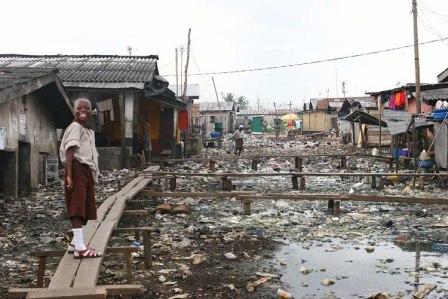About 60 million Nigerians live in poverty, with more than half of them in the north of Africa’s most populous nation, the U.K.’s Department for International Development said.
The economy has expanded at more than 5 percent a year over the past decade, Ben Mellor, head of DFID’s office in Nigeria, said today during the release of a World Bank report in the capital, Abuja. Nigeria’s economy is ranked as Africa’s biggest after a statistical recalculation of activity in April. Growth has benefited southwestern and southern regions most, he said.
The number of Nigerians living below the poverty line is “less than we previously thought and it shows progress is being made, but it’s not enough,” he said. “It has not resulted in sufficient jobs and it has been massively unequal.”
Northeastern Nigeria, particularly the states of Adamawa, Borno, and Yobe, have borne the brunt of a five-year insurgency by the Islamist militant group Boko Haram. The rebels have killed more than 13,000 people, President Goodluck Jonathan said on Sept. 23.
“Across the country we can see how violence and instability are linked to large pools of unemployed, frustrated young men,” Mellor said at the presentation of the World Bank’s Doing Business in Nigeria report.

